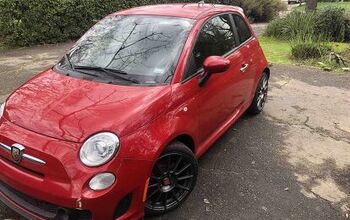Truck Thursday: Nissan Developing New Titan, Going "Back To The Basics" With Compact Pickups
About a year ago, Nissan’s response to nose-diving truck sales betrayed some serious ambivalence about chasing the profitable-yet-dangerous segment. Its first plan was to rebadge the new Ram, but that deal has fallen apart in the wake of Chrysler’s shotgun wedding to Fiat. At a loss for options, Nissan canceled the Quest, QX56 and Armada and started tooling up its Canton plant to produce commercial vehicles. It looked like Nissan’s days in the truck market were over. Now, USA Today reports that Nissan is developing a new full-sized pickup (and SUV) after all. By itself. Who’d have thunk it?
Why is Nissan getting back into a full-sized truck segment that it couldn’t even milk 20k units out of last year? Other than sheer desire to be a full-line manufacturer, there aren’t a lot of good rationalizations. On the compact pickup front, however, Nissan seems to have a better idea of what it wants and how it will get it.
Pickuptrucks.com spoke to Nissan product planning VP Larry Dominique about Nissan’s compact pickup goals, and got the following heartening quote for their trouble:
What we want to do with the compact truck market is go back to the basics of what it used to be. If you talk to the compact truck buyers, it’s not why they originally bought these things. They wanted a cheap, get-me-done truck and that doesn’t exist. If you go outside this country, we sell our old small trucks in high volumes because people want a cheap truck with a one-ton payload. We think if we can get that equation back in line — and that’s a big if – we think there’s clearly a market opportunity….
It wouldn’t be as small as our old Hardbody pickups. People like the space of the crew cab. But can the vehicle be three inches narrower than today? Can it shrink the second row by an inch and the front row by an inch and still satisfy customers? But I want to get better fuel economy and I want a lower price point. I don’t think we need 265 horsepower. The customer isn’t telling us they need all of that capacity. We need to work to define what we need to deliver to the customer.
With a brace of low-cost cars planned for the US and a utilitarian approach to compact pickups, Nissan is clearly trying to position itself as America’s recession brand. It’s not a strategy without its risks, especially with Chinese and Indian automakers set to invade over the next several years. Whether Nissan’s pre-emptive strike against the newcomers, offering low-cost products with a trusted brand name and less third-world stigma, pays off remains to be seen. But at least they’re planning on addressing one of America’s most neglected segments, the compact pickup, with a properly utilitarian attitude.
More by Edward Niedermeyer
Latest Car Reviews
Read moreLatest Product Reviews
Read moreRecent Comments
- Theflyersfan I know their quality score hovers in the Tata range, but of all of the Land Rovers out there, this is the one I'd buy in a nanosecond, if I was in the market for an $80,000 SUV. The looks grew on me when I saw them in person, and maybe it's like the Bronco where the image it presents is of the "you're on safari banging around the bush" look. Granted, 99% of these will never go on anything tougher than a gravel parking lot, but if you wanted to beat one up, it'll take it. Until the first warning light.
- Theflyersfan $125,000 for a special M4. Convinced this car exists solely for press fleets. Bound to be one of those cars that gets every YouTube reviewer, remaining car magazine writer, and car site frothing about it for 2-3 weeks, and then it fades into nothingness. But hopefully they make that color widespread, except on the 7-series. The 7-series doesn't deserve nice things until it looks better.
- Master Baiter I thought we wanted high oil prices to reduce consumption, to save the planet from climate change. Make up your minds, Democrats.
- Teddyc73 Oh look dull grey with black wheels. How original.
- Teddyc73 "Matte paint looks good on this car." No it doesn't. It doesn't look good on any car. From the Nissan Versa I rented all the up to this monstrosity. This paint trend needs to die before out roads are awash with grey vehicles with black wheels. Why are people such lemmings lacking in individuality? Come on people, embrace color.


































Comments
Join the conversation
A standard cab with a 6 foot box would meet the needs of so many carpenters, plumbers, electricians, handimen (or women), etc. that currently are being force-fed the rediculous Transit Connect (Taurus with a big trunk and ludicrous price). Add a topper and you have a perfect vehicle. I would go with a standard cab but with long seat travel. That way the big drivers can get in and us smaller folk can put some stuff behind the seat. 4WD option is not optional (northern MN); it must be available or forget the whole thing, but make it reasonably inexpensive and you will sell a lot of units.